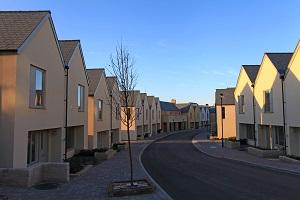The COVID-19 pandemic has had a dramatic impact on cities and the wellbeing of communities. Cities and urban areas are at the frontline in the fight against the COVID-19 public health crisis and its socio-economic consequences. They also hold significant potential for recovering better by adopting safe, sustainable and resilient urban economy planning solutions. Cities also play a key role in achieving Sustainable Development Goal 11 of the 2030 Agenda for Sustainable Development which is a commitment to ‘making cities and human settlements inclusive, safe, resilient and sustainable’.
To implement the 2030 Agenda and achieve the SDGs, many cities are working on the development of Voluntary Local Reviews (VLRs). VLRs present an important tool for supporting the economic and social recovery efforts from the COVID-19 pandemic. The actions of VLRs in cities serve a double purpose: VLRs can help the city to assess its own achievement of the SDGs while also supporting the cause of multilevel governance and enabling countries to integrate local-level assessments into Voluntary National Reviews (VNRs).
As part of the pre-meetings to the Regional Forum on Sustainable Development for the UNECE Region, on 11 March 2021, UNECE, in cooperation with the UN Department of Economic and Social Affairs (DESA), the International Telecommunication Union (ITU) and with support of the UNECE Centre of Excellence in Norway on Smart Sustainable Cities and the City Government of Helsingborg in Sweden, will convene a webinar “Local Governments: The role of SDG Voluntary Local Reviews”.
Based on the discussions at the webinar, UNECE, in cooperation with its Centre of Excellence in Norway and their partner organizations, will elaborate “Guidelines for the use of the Key Performance Indicators for Smart Sustainable Cities in the preparation of the Volunteer Local Reviews”.
These will build up on the UNECE/ITU Key Performance Indicators for Smart Sustainable Cities used in the smart sustainable city profiles for the cities of Grodno (Belarus), Nur-Sultan (Kazakhstan), Bishkek (Kyrgyzstan), Tbilisi (Georgia) and Podgorica (Montenegro), developed within the UN Development Account (UNDA) 12th tranche project “Smart Sustainable Cities for the 2030 Agenda on Sustainable Development and the New Urban Agenda in the UNECE Region”. The guidelines will also incorporate lessons learned from the for three pilot projects where UNECE supports the economic and social recovery from the COVID-19 pandemic in Bishkek (Kyrgyzstan), Kharkiv (Ukraine) and Tirana (Albania), under the UNDA 13th tranche project “Building Economic Resilience after COVID-19”.
The guidelines will aim at positioning VLRs as forward-looking and action-oriented instruments promoting sustainable and resilient urban development, mobilizing stakeholder support towards a collaborative implementation of city actions, and aligning the use of local finances towards the achievement of SDGs and recovery from the COVID-19 pandemic. They are expected to be endorsed at the eighty second session of the UNECE Committee on Urban Development, Housing and Land Management in October 2021.


